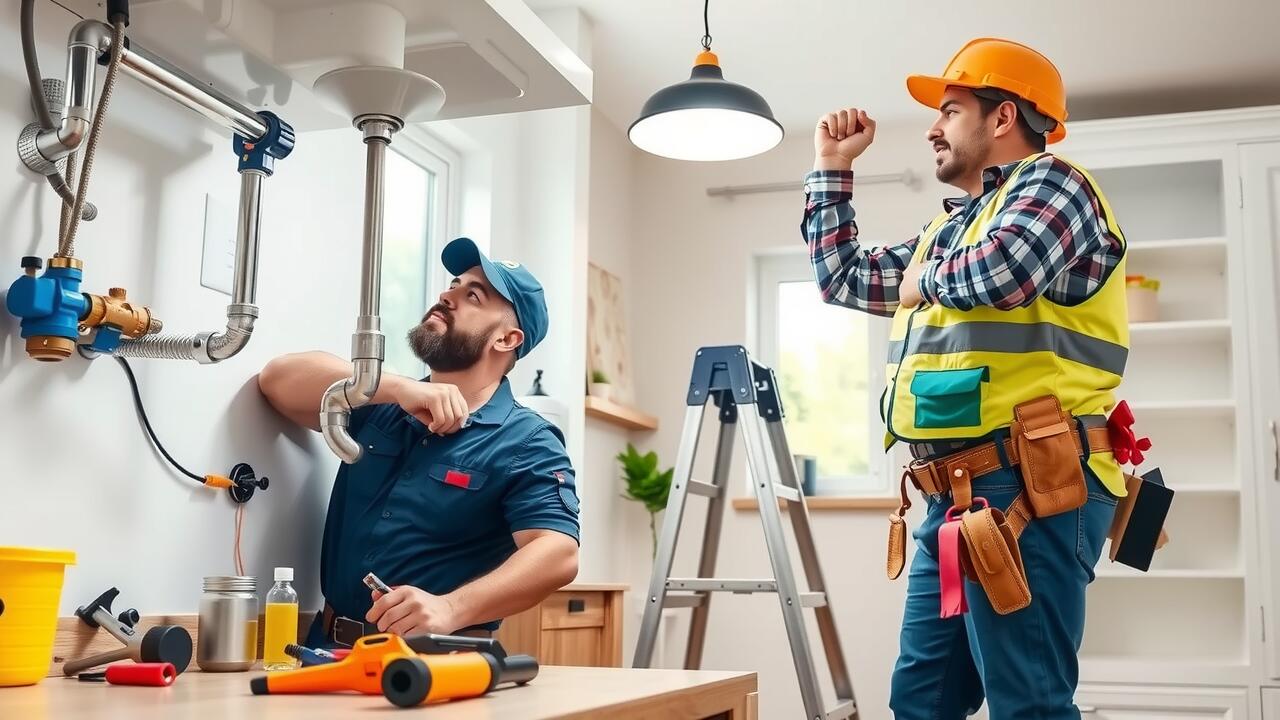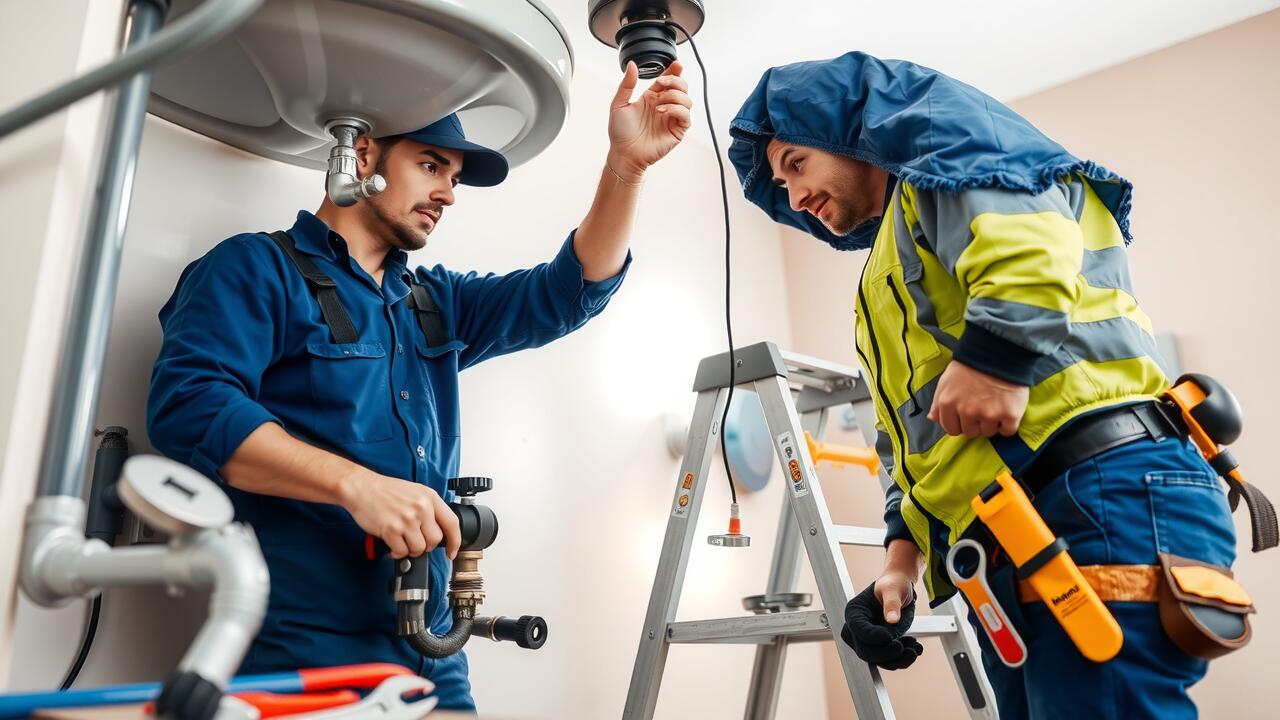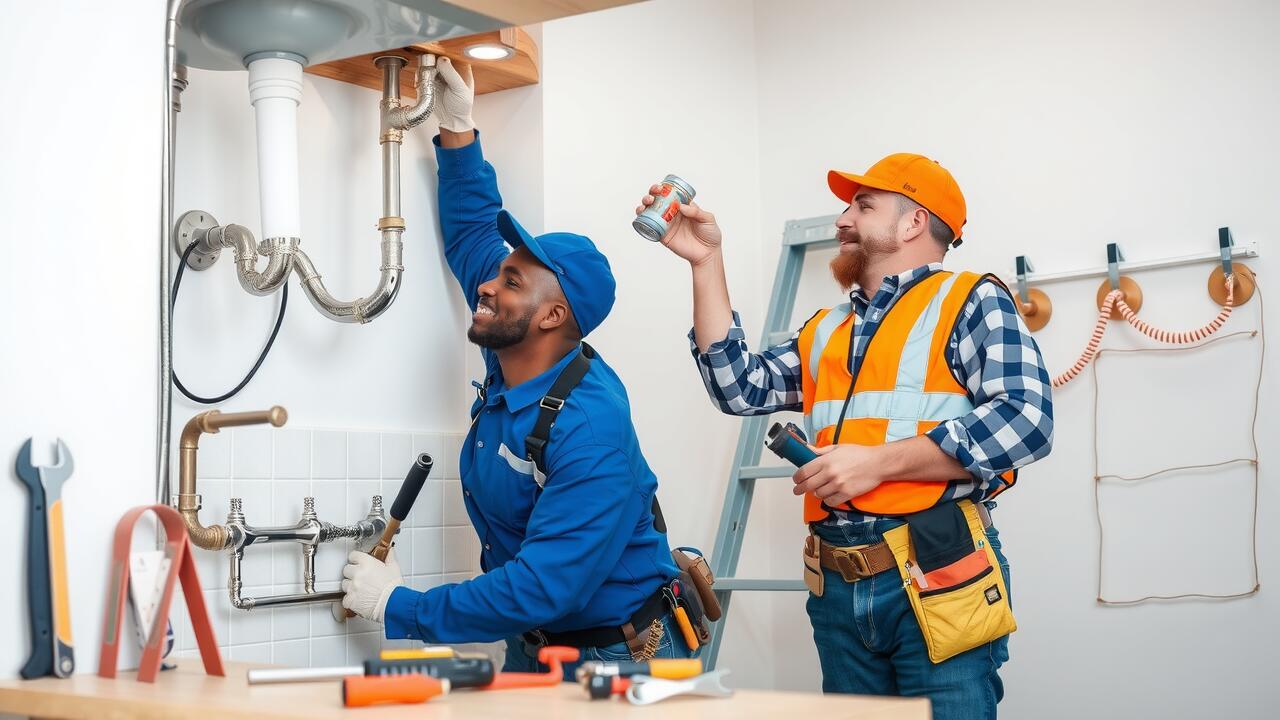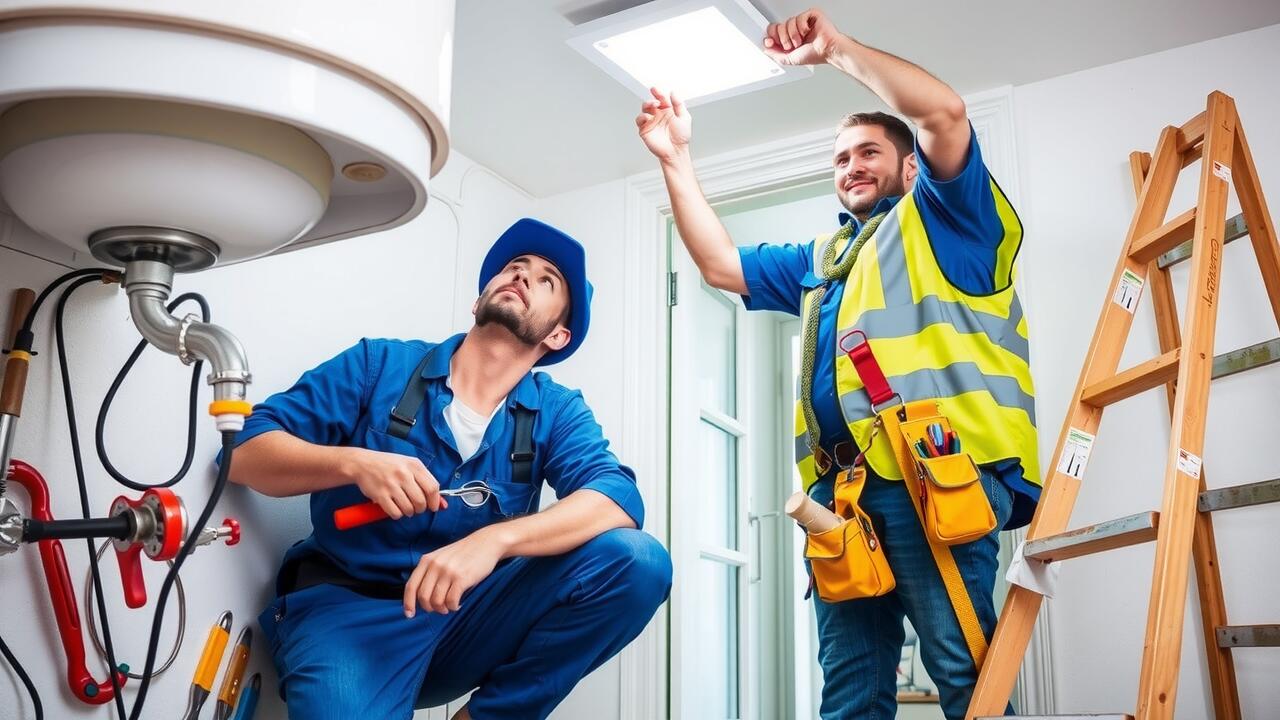
Working Conditions for Plumbers
Plumbers often find themselves working in a variety of environments, from residential homes to commercial buildings. The nature of their job requires them to tackle both indoor and outdoor plumbing tasks, which can lead to exposure to various weather conditions. Tools and equipment are crucial in their line of work, and plumbers frequently need to carry them to different job sites.
The physical demands of plumbing can be significant; it involves lifting heavy materials and spending considerable time on one’s feet. In Turnhurst, Stoke-on-Trent, plumbing and electrical work may also entail navigating tight spaces, such as under sinks or in crawl spaces, which can be uncomfortable. Safety is paramount, as plumbers must adhere to strict guidelines to prevent accidents and ensure quality workmanship in all their projects.
Common Challenges Faced in Plumbing
Plumbers often face a variety of challenges in their line of work, with one of the most significant being the physical demands of the job. Tasks can range from working in cramped, uncomfortable spaces to dealing with heavy materials and tools. These conditions can lead to physical strain and injuries if proper techniques and precautions are not taken. Additionally, plumbing issues frequently arise unexpectedly, requiring quick thinking and problem-solving skills to resolve often under time constraints.
Another challenge lies in the need for compliance with strict regulations and safety standards. Plumbers must stay updated with local building codes and industry guidelines to ensure their work is both safe and legal. In places like Hem Heath, Stoke-on-Trent, plumbing and electrical work often intersect, adding an extra layer of complexity as professionals must coordinate with electricians to resolve issues that may affect both systems. This collaboration can be challenging, particularly if there are communication barriers or differing perspectives on how to tackle specific problems.
Working Conditions for Electricians
Electricians typically work in a variety of settings, from residential homes to large commercial buildings. Their tasks may include installing lighting systems, troubleshooting electrical faults, and ensuring compliance with safety regulations. Working conditions can be demanding, as they may involve climbing ladders, working in confined spaces, or managing heavy equipment. Heat and cold can also be factors, especially when operating in unconditioned environments or during inclement weather. For those in regions like Cold Ridings, Stoke-on-Trent, plumbing and electrical work often requires adaptability to local conditions and a readiness to tackle diverse challenges.
Job hours for electricians can vary significantly. Many work standard hours during the day, but emergency repairs often necessitate evening or weekend shifts. This unpredictability is part of the role, requiring a commitment to being available outside traditional work hours. Additionally, electricians must stay updated on the latest technologies and legislative changes which can affect their work. The continual learning and adaptation required can enhance their skills, ultimately leading to better career prospects in the dynamic landscape of plumbing and electrical work.
Typical Job Environments for Electricians
Electricians typically work in a variety of environments that may include residential, commercial, and industrial settings. In homes, they handle installations, repairs, and upgrades of lighting fixtures, wiring, and electrical systems. Commercial spaces often demand electricians for larger scale projects, such as setting up electrical systems in offices, retail locations, or restaurants. Industrial electricians may work in factories or power plants, dealing with complex machinery and high-voltage systems. Some even find themselves in new builds or renovation projects, adapting to different tasks as needed.
In places like Hem Heath, Stoke-on-Trent, electrical work often intertwines with plumbing tasks, requiring electricians to collaborate closely with plumbers for integrated systems. This collaboration is essential in buildings where electrical and plumbing systems coexist, such as in kitchens and bathrooms. The variety of environments means electricians can expect to encounter a wide range of challenges, from troubleshooting outdated systems to implementing innovative solutions in modern builds. The hands-on nature of the role allows for dynamic workdays with opportunities to develop skills across multiple trades.
Opportunities for Advancement in Plumbing
Plumbing offers various opportunities for advancement, allowing skilled tradespeople to enhance their careers. Initiatives such as specialised training in areas like gas installation or renewable energy systems can lead to higher earnings and job security. With experience, many plumbers move into supervisory or managerial roles, overseeing projects and guiding apprentices. These positions not only come with increased responsibilities but also present a chance to build a reputation within the community.
In regions like Hem Heath, Stoke-on-Trent, plumbing professionals can find niche markets that offer lucrative prospects. Establishing a business focused on residential or commercial plumbing services allows for diverse income streams. Networking with local contractors and engaging in ongoing education can further bolster a plumber’s standing in the industry, making it easier to secure contracts and expand operations. Continuous skill development is essential for those looking to maximise their earning potential.
Pathways to Specialisation and Higher Earnings
Advancement in plumbing often involves specialisation in certain areas, which can lead to higher earnings. Professionals can choose to focus on sectors such as commercial plumbing, industrial systems, or even green technologies, which utilise sustainable practices. Gaining specialised qualifications or certifications enhances expertise and marketability. Being based in regions like Mount Pleasant, Stoke-on-Trent, can also present additional opportunities for plumbers, as local demand for specialised work may be on the rise.
Similarly, electricians can pursue specialisations that increase their earning potential. Fields such as renewable energy systems, high-voltage electrical work, or automation technology are significant areas for growth. Continuous education and training in these niches allow electricians to remain competitive and adapt to industry changes. With the ongoing evolution of electrical standards and technologies, professionals in places like Mount Pleasant, Stoke-on-Trent can leverage their skills to achieve greater financial success.
FAQS
Which profession, plumbing or electrical work, generally offers better pay?
The pay can vary greatly depending on location, experience, and specialisation, but on average, electricians tend to have slightly higher earning potential compared to plumbers.
What factors affect the salary of plumbers and electricians?
Several factors influence salary, including geographic location, level of experience, the complexity of the job, industry demand, and any special certifications or qualifications obtained.
Are there more opportunities for advancement in plumbing or electrical work?
Both fields offer opportunities for advancement, but electricians may have more pathways to specialisation and higher earnings, such as working in renewable energy or advanced systems integration.
What are the typical job environments for plumbers and electricians?
Plumbers often work in residential, commercial, and industrial settings, dealing with water supply and drainage systems. Electricians, on the other hand, frequently work in new constructions, renovations, and maintenance of electrical systems in various environments.
Is job security better for plumbers or electricians?
Both professions generally offer good job security due to the ongoing demand for skilled tradespeople. However, fluctuations in construction and renovation projects can impact job availability for both fields.




